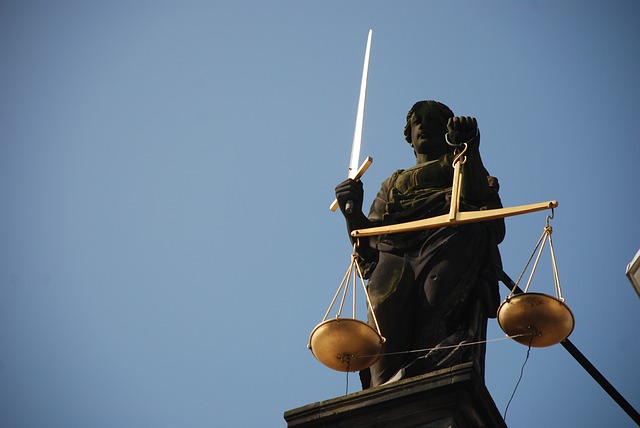Neighbours and Communities:
Do you know what the agreements should be at the Owners’ Meeting of your Neighbourhood Community?
The regime to reach agreements within the board of owners in neighbourhood communities is regulated by the Horizontal Property Law.
It is complex but follows a general rule: unanimity is required, albeit with important exceptions. This will help to modify or approve rules contained in the foundational title or in the communities statutes.
Therefore, we can all ask ourselves at this point: what are examples of modification of the foundational title? These could be:
Modification of participation quotas / fees,
Division, segregation or aggregation of floors and premises,
Declassification of common elements (to become private), etc…
Communities of neighbours common elements:
Unanimity is a must at the owners’ meeting to modify common elements. This action implies a modification of the foundational title. However, and logically, works to preserve the property, to guarantee habitability, security or accessibility, even if they entail a modification of the foundational title, do not require any type of prior agreement at the Owners’ Meeting. Similarly, the Board will not require any prior agreement for “reasonable” works requested by a Community resident with a disability, or by a person over seventy years of age, in order to properly use the common elements.
Nor does the installation of charging points for private electric vehicles. It only requires prior communication with the Community of Neighbours by the direct beneficiaries who bear the costs of the installation and of the electricity.
Hence, there is no need of a prior agreement at the Meeting, as long as the charging point is placed within the owner’s individual space.
The general rule is that any agreement by law without a special majority will simply need the majority of the existing community owners. They have the bulk of participation fees at the first summon of the Meeting. If not, at the second summon, the majority will come from the attending owners with the bulk of participation fees.

Communities of Owners in agreement
Therefore, when is a certain majority required to reach agreements at the Owners’ Community Meeting?
The following are some typical examples of the majorities required for certain types of agreements:
1. Qualified majority of three fifths of owners and participation quotas for:
• Creation or elimination of porter services, concierge or other common services of general interest. And what is considered general interest? Well, those services related to the best use and upgrading of the communities, which include: cleaning service of common elements, hiring lifeguards for the pool, automatic irrigation for common areas and lighting, etc… Recreational services are not considered of public interest i.e. the construction of a swimming pool or a social club, which imply an increase of the community fees, since they are non-essential services.
• Alteration of the structure of the building or common elements: to build new floors or to close terraces, the approval must come from three fifths of the total of owners who pay at least the same amount of participation fee. The affected owners, must also give their consent, provided they are deprived of the use of the common element, or part thereof.
• Division, aggregation or segregation of flats and premises: with owners consent and compensation for damages, at the meeting.
• Leasing of common elements not meant for special use (as per the foundational title) such as part of the community gardens as tennis or paddle courts. The lease must never limit the use of the common elements or deprive any owner of their benefits. For example, renting the roof top for advertisements must not stop other owners from enjoying that section of the building. Also, the double agreement of three fifths of owners is enough to install mobile phone masts on roofs, despite the debate about the dangers to the health of people.
2. Majority of a third of the owners and participation fees for:
• The installation of common telecommunication infrastructures:
-digital terrestrial tv signals DTTV
-digital and analogue radio and internet from the roof or the street entrance, to the point of entry to each dwelling
-signal distribution of satellite television.
All according to the Royal Decree-Law 1/1998, of 27 February.
Remarkably, owners who do not expressly vote in favour of these facilities do not have to bear the costs of installation or their subsequent maintenance. They might do in the future, if they decide to make use of these facilities.
• The installation of common or exclusive services for the use of renewable energies, or for new collective energy supplies, upon the request of any owner.
3. Simple majority of owners and participation fees for:
• Removing architectural barriers to facilitate the mobility of people with disabilities:
-for people over 70 with a degree of disability equal to or greater than 33%, such as Social Security pensioners with a valid permanent disability (full, absolute or great disability)
-pensioners of passive classes with a recognised pension for permanent disability.
-The persons presenting the disability may be owners, or simply people who live, work or provide services in the building.
• Lift services, even when it involves the modification of the foundational title or by-laws. Interestingly even a simple majority for the installation of a lift will not be required when the owner shelters:
– a person with a disability
– someone over 70 years of age who works or provides services
– or if the yearly bills, without subsidies and public aid, do not exceed 12 ordinary monthly payments of community expenses.
• Works to remove architectural barriers in common elements (lifts, corridors…) depending on the degree of people’s disability. They address:
i. The modification of the gateway,
ii. The suppression of steps
iii. The installation of lifts or stair-lift platforms

Your Community of Owners can resort to Justice
When to resort to Justice for fairness of judgement?
• When the agreement has not been reached at two owners’ meetings, before appealing to the courts
• If the appeal to the courts was made before the expiration period of one month. It counts from the date of the second meeting in which the frustrated agreement was attempted.
• All agreements requiring a qualified majority, not governed by a simple majority, are excluded from the judicial process.
You may appeal to the courts in equity when a neighbour in bad faith or without any foundation opposes agreements.
Finally, note that silence can be interpreted as tacit consent or manifestation of a specific valid will. It might happen in view of the:
- existing relationships between the parties,
- behaviour or conduct of neighbours at the Meeting,
- circumstances in which the silence occurs (which can be considered as assent), etc…
At the Pérez Parras Economists & Lawyers Firm in Málaga and Nerja we advise many of our clients about frequent situations in which the disagreement between neighbours generates conflicts, tensions or damages from other owners. In case of difficulties in your neighbourhood community, do not hesitate to ask for our legal advice. Call us today!
In the Pérez Parras Economists & Lawyers Firm in Málaga and Nerja we have extensive experience in Horizontal Property Law, in neighbourhood conflicts and in disagreements at Owners’ Meetings. Know your rights in your community of neighbours. Effectively exercise them and respond appropriately to your obligations within the community of owners!
Therefore, if you are in this situation and you want us to help you, do not hesitate!! Consult our office of Economists & Lawyers in Malaga and Nerja regarding your Communities of Neighbours and we will meticulously study your case.


LEAVE A REPLY